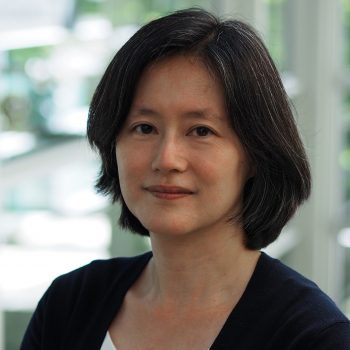
Stephanie Chang
Professor, IRES
Professor, School of Community and Regional Planning
Contact Details
West Mall Annex Room 241
1933 West Mall
The University of British Columbia
Vancouver, BC V6T 1Z2
Canada
stephanie.chang[at]ubc.ca
Personal website:
https://sites.google.com/site/stephanieechang1/home
Google scholar:
https://scholar.google.com/citations?hl=en&user=eyT7IMIAAAAJ
Research Interests
Bio
At UBC, Dr. Stephanie Chang is a professor with joint appointments in the School of Community and Regional Planning (SCARP) and IRES. She currently serves as co-director of the Master of Engineering Leadership (MEL) in Urban Systems program.
Dr. Chang held a Canada Research Chair (Tier 2) in Disaster Management and Urban Sustainability from 2004 to 2013. Much of her work aims to bridge engineering, natural sciences, and social sciences in addressing the complex issues of hazards and disasters. Her research has ranged from empirical investigation of major urban disasters to computer modeling and economic analysis of risk reduction strategies. She is particularly interested in issues of urban risk dynamics, disaster recovery and resilience, infrastructure systems, climate change adaptation, and coastal cities.
Dr. Chang was awarded the 2001 Shah Family Innovation Prize by the Earthquake Engineering Research Institute (EERI), was EERI’s 2011 Distinguished Lecturer, and received the 2018 Distinguished Research Award from the Integrated Disaster Risk Management Society (IDRiM). She has served on the editorial boards of Earthquake Spectra, Environmental Hazards, and Natural Hazards. She was a member of the U.S. National Research Council’s Committee on Disaster Research in the Social Sciences, as well as its Committee on Earthquake Resilience – Research, Implementation, and Outreach. From 2021-2022 she served on the Council of Canadian Academies’ expert panel on Disaster Resilience in a Changing Climate, whose final report identified opportunities to better integrate climate change adaptation and disaster risk reduction efforts to enhance resilience.
Projects
Supporting Business Preparation for Future Shocks: International Cases to Understand How Recovery Programs Can Facilitate Adaptation (BRIDGE)
This study investigates the effectiveness of government policies in supporting business recovery from the COVID-19 pandemic. Together with an international research team, Dr. Chang and her students are conducting coordinated data collection across 10~15 cities around the world. They seek to understand how businesses were impacted by the pandemic, how government policies influenced their recovery, and how policies can best support businesses’ capacity to withstand future crises, including climate-related disasters. This study is a collaboration with researchers in the U.S., Japan, New Zealand, and the Netherlands.
BC Local Government Actions to Address Coastal Flooding, Sea-Level Rise, and Tsunami Hazard
This project examines how coastal municipalities and other communities in British Columbia are currently addressing coastal flooding risks, including sea-level rise and tsunami inundation. Building on the Resilient Coasts Canada project, Dr. Chang and her students are developing an overview of the state of coastal adaptation across BC in 2023.
Living with Water
Dr. Chang and her students are participating in this project to help communities on BC’s South Coast prepare and adapt for sea level rise and flooding.
Reducing the Catastrophic Risk of a Cascadia Megathrust Earthquake
A major earthquake on the Cascadia Subduction Zone (CSZ) could cause devastating impacts across the Cascadia region, including British Columbia. This project brings together an interdisciplinary team of researchers to address the following objectives: (1) to quantify expected ground shaking associated with M8-9 earthquakes in the CSZ; (2) to understand how the built environment will perform; and (3) to identify community risk reduction and resilience strategies. The study is a collaboration with Carlos Molina Hutt at UBC (structural engineering) and Sheri Molnar and Katsuichiro Goda at Western University (seismology). Dr. Chang and her students are focused on understanding socio-economic vulnerability in Vancouver’s West End neighbourhood.
Courses
PLAN 531 Planning for Disaster-Resilient Communities
PLAN 506 Information and Analysis in Planning (restricted to MCRP students)
Prospective Students/Colleagues
Dr. Chang welcomes applicants from a variety of academic backgrounds including geography, urban planning, civil engineering, and environmental sciences, for example. Since her current projects have a focus on urban disaster risk and resilience, her group is especially looking for colleagues and scholars who bring skills in quantitative analysis (e.g., GIS and urban modeling), a demonstrated interest in hazards and disasters, and an orientation towards interdisciplinary, applied research.